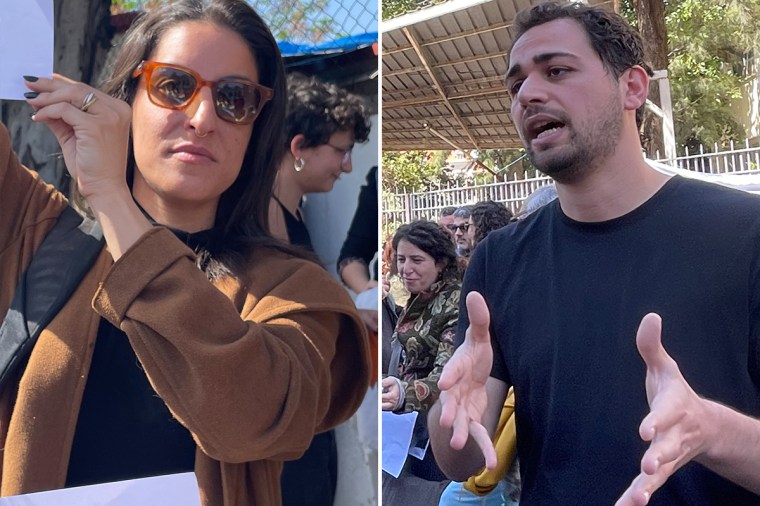On March 30, 2023, two officers with Lebanon’s General Directorate of State Security stopped Jean Kassir, founder of the news website Megaphone, while he was driving in the capital city of Beirut, according to Megaphone and Kassir, who spoke to CPJ in person. The officers summoned Kassir to attend questioning at the directorate’s office the following day.
The journalist’s lawyer, Dalia Chehade, went in his place and learned that the summons related to a post on Twitter by Megaphone accusing several Lebanese officials of being fugitives from justice, according to the journalist and Chehade, who spoke to CPJ by phone.
The summons was issued at the request of Ghassan Oueidat, a public prosecutor at the court of cassation, who was named as one of those officials allegedly evading justice, the journalist and his lawyer said.
On April 3, state security officials again summoned Kassir for questioning, and asked him to appear at the directorate the following day. Chehade appeared on the journalist’s behalf on April 4 and asked for the case to be dropped. Later that day, Kassir received a call from Minister of Information Ziad Makari saying that Oueidat had retracted his complaint, according to the journalist and his lawyer.
CPJ called Oueidat for comment, but he did not respond. When CPJ called General Directorate of State Security spokesperson George Harb, he declined to comment on the record.
Separately, on March 31, the Lebanese Cybercrimes Bureau issued a summons to Lara Bitar, founder and editor-in-chief of the independent investigative journalism outlet The Public Source, to respond to a lawsuit filed by the Lebanese Forces, a Christian political party, according to the outlet and Bitar, who spoke to CPJ in person.
The complaint stemmed from a piece published by the outlet in August 2022, covering the alleged dumping of toxic barrels at Beirut’s port when it was under control of the Lebanese Forces. CPJ called Lebanese Forces spokesperson Antoinette Geagea for comment but didn’t receive any response.
On April 6, Bitar’s lawyer Ali Swaidan responded to the summons on the journalist’s behalf and objected to the complaint, citing the bureau’s lack of authority to question journalists, according to news reports and Bitar.
According to Lebanon’s publications law, journalists are required to be tried by a special publications court and should not be investigated by security agencies. On April 7, the minister of information told Bitar that the case had been moved to the publications court, Bitar told CPJ.
On April 6, CPJ joined 23 civil society and media organizations in a statement condemning the summoning of Kassir and Bitar.
